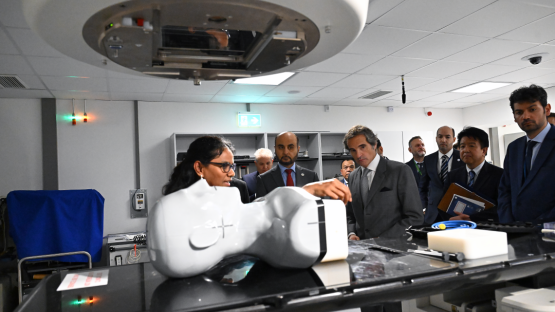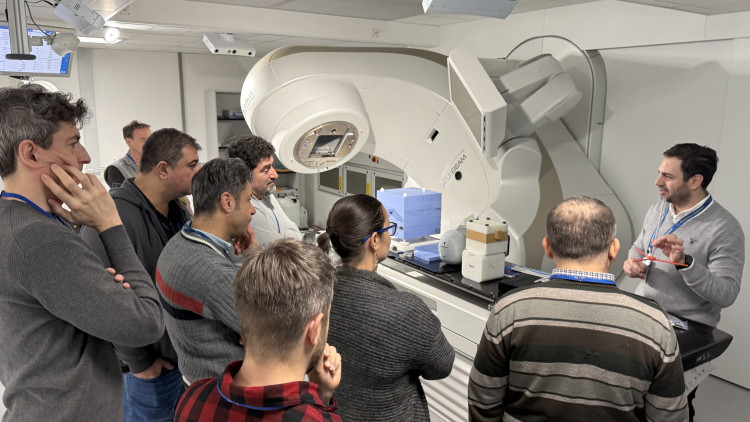For more than 60 years, the IAEA Dosimetry Laboratory in Seibersdorf, Austria has played a central role in shaping the medical uses of ionizing radiation and benefiting millions of patients across the globe. Through its calibration and audit services as well as its dissemination of best practices in dosimetry and quality assurance, the work of the laboratory enables healthcare providers around the world to diagnose and treat cancer safely and accurately. Its recent refurbishment, completed under the Agency’s Renovation of the Nuclear Applications Laboratories initiative, ensures its ability to continue addressing current and future needs of Member States efficiently.?
“In 2045, the world is projected to see a global cancer burden of 32.6 new million cases and 16.9 million deaths. As the use of ionizing radiation to tackle this disease expands, quality assurance is an essential component for safe implementation — including in global cancer initiatives like Rays of Hope,” emphasized May Abdel-Wahab, Director of the IAEA’s Division of Human Health. “Through its audit and calibration services and its research and training activities, the Dosimetry Laboratory helps patients worldwide by assuring that the care they receive is effective, consistent and of a high-quality.”??
The IAEA established the laboratory in 1961 to address the growing need for standardization, especially since Member States were moving away from X ray machines and radium applicators to more powerful radiation sources to treat cancer. At the time, the Agency noted that many hospitals and laboratories operating these sources lacked the trained staff, equipment and capabilities to undertake dosimetry, or the measurement and assessment of ionizing radiation doses absorbed by the body.??
Today, the IAEA Dosimetry Laboratory continues to meet Member State needs by contributing to various activities in the field of dosimetry and medical radiation physics. It is equipped with state-of-the-art equipment that includes a linear accelerator, a high dose rate brachytherapy afterloader, a range of irradiators, dosimetry systems and software. These cover the spectrum of equipment needed not only for radiation medicine procedures but also for radiation protection. Additionally, this equipment?is frequently used to run hands-on training activities for professionals from Member States.?










